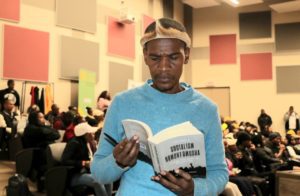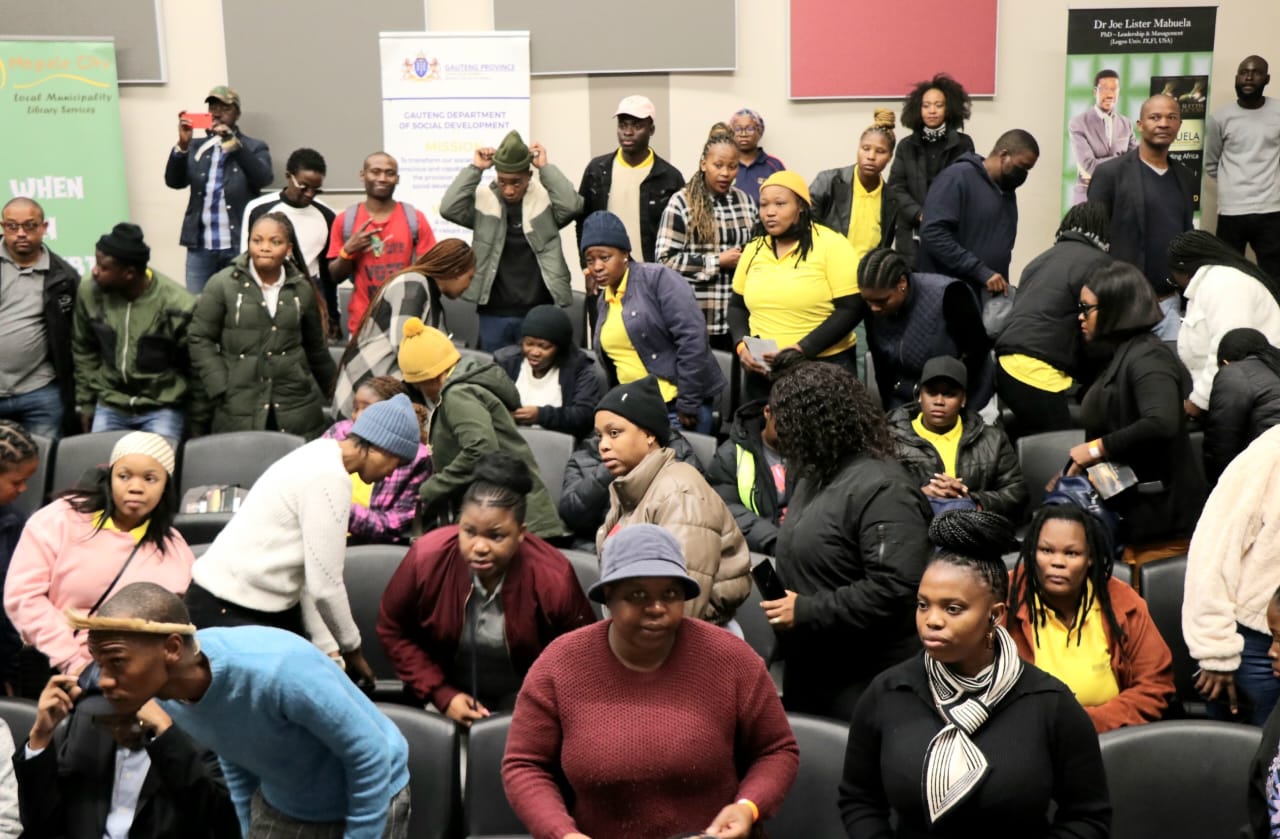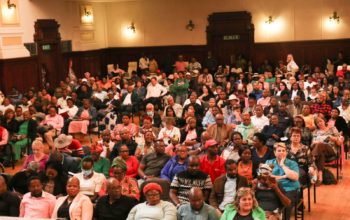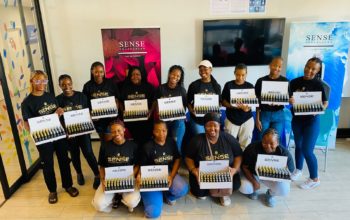By Staff Reporter
news@alexreporter.co.za
More than 100 youth, together with authors and publishers, gathered at the Gauteng Archived Centre in Kagiso, West Rand, as part of the youth month commemoration.
The literacy workshop was organized by the Gauteng Department of Social Development with the aim of encouraging the youth to read and write books.
35-year-old Nhlanhla Nkosi from Thokoza in Ekurhuleni was one of the guest speakers who encouraged young people to read and write short stories.
Nkosi started Books in the Black Space book club in Thokoza after he realized that learners in grades nine and eleven are struggling to read, and the library in their area was surrounded by more than eleven taverns, which made it difficult for youth to visit.

“I lost hope in the library because the one we knew was not conducive to studying. And the other problem was that libraries in the area are closed by four in the afternoon; the kids are still at school,” says Nkosi.
“As a young person, I am sick and tired of talk shows,the reason some of us are messed up today. However, I encourage them to start their own book clubs, which is not difficult, and they should stay away from television,” he says.
“Telling stories is valuable because they become a legacy of experience. They will help others learn and tell their stories, which can be healing and allows us to move forward rather than being stuck in the past.”
Nkosi also highlighted that the lack of physical learning opportunities and economic distress have caused many youths to become disengaged and drop out of school.
He stressed the need for government intervention, in partnership with key stakeholders, to design and implement programs aimed at rebuilding trust and re-engaging the youth.
Dr. Joe Maubela, a pastor in Kagiso, an author, and a life coach who has published a few books, says he is overcome by emotions when he sees youth of today commemorating youth day drinking alcohol, whereas some of them who witnessed it lost some of their family members.
“Each year, the country commemorates the June 16 student uprising. This year will be 48 years since the 1976 Soweto uprising, in which many children and youth lost their lives while standing up against a system that sought to strip them of their identity and dignity and break their spirits.
As did the youth of 1976, today’s youth are challenged by modern-day challenges such as the COVID-19 pandemic, which has caused a considerate risk in relation to access to education.
Lack of physical learning and economic distress have prompted youth to become disengaged and drop out of school. In addressing these challenges, it is important that the government intervene in partnership with other key stakeholders to design and implement programs that seek to rebuild trust, with efforts to be effective in the lives of youth through interventions such as youth mobilization, awareness, and educational programs.





